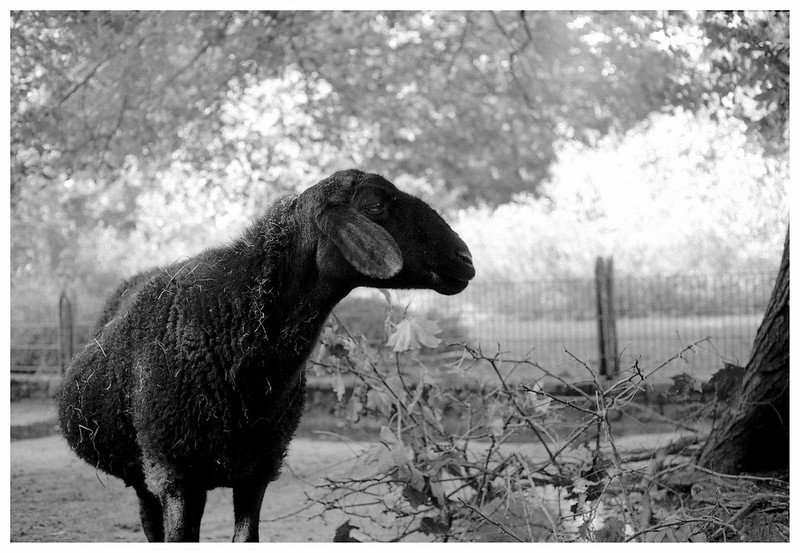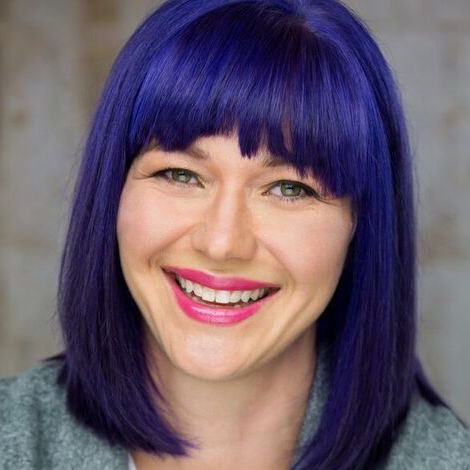
Today’s post is by author E. J. Wenstrom (@EJWenstrom). Sparks, the concluding novel of her four-part fantasy series, is out now.
I’m a big fan of antiheroes. A flawed character is just so much more interesting than your classic Dudley Do-Right. Anyone can like a character who makes the right choices and defends justice all the time. But that just doesn’t feel very authentic.
Can I just say it? True confessions? Traditionally heroic, always-good characters get boring.
Give me a character who struggles. Give me a character with flaws big enough to get in their way. Give me a character with complexity and baggage. This is a character that might surprise me. Perhaps not for the better—but I’ll be on the edge of my seat for sure.
I follow this mantra as much when writing my own characters as I do in my reading choices. Some—okay, most—of my characters are really rough around the edges.
But as my editor is always patiently reminding me, a lot of people don’t like unlikeable characters, on reasons of unlikeable-ness. This can be an especially perilous with female characters, whose margin for likability is even tighter than their male counterparts.
As I finished the final novel in my fantasy series this year, I gave some deep reflection to what exactly where the line is for unlikeable characters.
Can an unlikeable character still inspire readers to root for them? Heck yes—but it takes a little alchemy.
Here are a few key elements to create an unlikeable character readers will still be willing to root for:
Redeemable qualities
Einstein once said that if you judge a fish by its ability to climb a tree, it will believe it is stupid. Everyone is a genius at something. Likewise, when it comes to characters, every one has a quality worth respecting—something redeeming about them.
Elphaba was uncompromising. Dr. House was brilliant. Han Solo was charming. Redeemable traits can be found in almost any character if you spend enough time with them to understand their motives and underlying drives.
It doesn’t have to necessarily be a good quality. I enjoy Dr. House more for his wry humor at his interns’ expense than his ability to save lives—it’s just fun to watch, and I don’t have to want to hang out with the character myself to appreciate it.
If you can find and draw out these distinct qualities that make your character admirable (or entertaining), your unlikeable character will become a lot more root-able for readers in an instant.
Vulnerability
Every character needs to show its vulnerabilities to the reader. It’s important to expose the humanity of your character—and don’t be afraid to cut deep.
If a character is despicable, what made them this way? Is it drawn from fear? A past trauma? What do they need that they have been denied?
A character who suffers can be forgiven a great deal. Who among us is our best when we are suffering or wounded?
Belief they are doing right
A character worth rooting for is a character willing to fight for something. In fantasy that fighting is often pretty literal, but it doesn’t have to be.
In real life, people make terrible choices. But most of us, most of the time, are legitimately trying our best to do the right thing. So are our characters, whether they manage to really do good or not.
Their nature, or the things that have happened to them, may make it harder to make the actions we’re used to expecting from our Knight-in-Shining-Armor heroes. But they’re doing their best with what they’ve got.
If you can get this clearly onto the page, your reader will be willing to go a lot farther with you.
Action-Orientation
This was one warning my editor gave me about unlikeable characters I took especially to heart—a character who wallows and whines through the pages is no good.
A root-able character is a character who takes action. Taking the wrong action is far better than taking no action at all (see above). Action is the momentum that keeps the story moving forward—without it, it’s going to flail, and your readers are going to lose interest.
So when in doubt, keep your character moving. Then, make them wrestle with the consequences, for good or for bad.
The Secret to Unlikeable Characters
Can an unlikeable character actually be…likeable? Maybe? Maybe not. And maybe that’s not actually the most important thing. You can get your readers behind a character they don’t want to grab a beer with—if you allow enough humanity to show through.
Ultimately, these elements help make a character be root-able despite major foibles because these qualities make these characters more like us.
Unlikeable characters work best the same way easy-to-like ones do—when we help readers to see themselves in the characters. Because a character we can recognize ourselves in, is a character we want to see succeed.
And in this way, perhaps, when that character’s relatability is rooted in how flawed they are, that ultimate victory after the struggle can be even more meaningful.

E. J. Wenstrom believes in complicated heroes, horrifying monsters, purple hair dye and standing to the right on escalators so the left side can walk. She writes dark speculative fiction for adults and teens, including her new release, a young adult dystopian novel titled Departures (August 10, 2021). When she isn’t writing fiction, E. J. Wenstrom is a regular contributor to DIY MFA and BookRiot, and co-hosts the Fantasy+Girl Podcast. Learn more at her website.

Glad to see this topic discussed. Methinks the problem with most unpublished protagonists is precisely this “saintly’ quality that many writers think goes hand in hand with being a hero. Whereas quite the opposite is true. Nobody wants to watch a saint navigate life. They’re likely to bend with every breeze, instead of fighting back. Furthermore, isn’t the hero’s journey one of struggling through adversity to emerge as someone slightly more saintly? We don’t want our heroes to start there. In fact, if I were watching a movie where the protag began as a do-gooder, I would expect him/her to suffer all sorts of downside to being so altruistic. Some do-gooders really annoy us and deserve a comeuppance. And in the aftermath of that ‘fall’ they begin to see a new way of being. Interestingly, the ‘antagonist’ in my work-in-progress is a highly evolved character, and I’m struggling to render him less likeable. I guess were all the heroes of our own lives and if we’re ambitious enough we’ll learn what it really means to be a hero — i.e., we’ll discover that whatever we’ve been doing sucks! And at the heart of the story we’ll see a new way forward which takes our nobility up a notch. What say ye?
Indeed, a charater who is too good can be as problematic as one that is too bad! Humanity is rarely all one or the other. Thanks PJ!
I never considered creating a likeable bad guy. Shouldn’t your antagonist remain antagonistic? There should be someone fighting the protagonist…right? Good vs evil. Perhaps I’m naïve, but the bad guys in all my stories are just that—bad to the bone. I want my readers to curse the ground they walk on. Okay, should there be a redeeming quality somewhere in the despicable creature? I suppose. One maybe, but no more, and something small at that. I don’t even like my antagonists. That’s the whole idea :)…
Personally, I enjoy a protagonist who is very complex and difficult to like–but I do enjoy an antagonist who is sympathetic too. I guess from where I stand, the complexity of unclear morality in the gray is more fun than black and white.
But, this comes down to preferences. There are plenty of stories where good and evil are very clear that have resonated with readers too–and plenty have gone on to become renowned classics. It’s just a question of what you want to write, and then having the tools to tell that story the best you can.
[…] Working on your characters? Kathryn Craft advocates letting your protagonist’s light shine, and E. J. Wenstrom explains how to make unlikeable characters compelling. […]
[…] E. J. Wenstrom: Writing Unlikeable Characters Readers Will Root For […]
When I first started writing I painted all my bad guys as evil. They were so one-dimensional. It was when I heard an interview with Robert De Niro where he said he had to like all the characters he portrayed that I had an ah ha moment. The bad guys never saw themselves as bad. No, they had reasons for their actions, motives for their behavior. They felt they were good! Thank you for your article! It’s great!
My editor sent me this post after a long struggle to get me to add humanity to the protagonist of my novel, Backstory, under development. Actually, I started writing a story about six ex-classmates and it grew to encompass eight main characters and only then did it become clear the bad guy was the most interesting of them all and the (anti)hero of the story. In the end my protagonist does exhibit humanity, though I suspect readers will feel, like I do, that he gets the punishment he deserves. Thanks for your piece.
Thank you for this helpful and reassuring post. I’m working on a children’s supernatural comedy series featuring a bad boy wizard. He isn’t entirely likeable, but he’s fun to write and I hope he’ll be fun to read. I’ve always found villains more interesting than heroes.